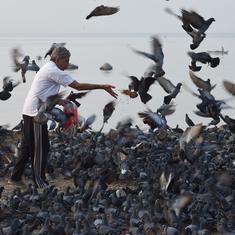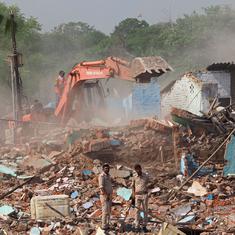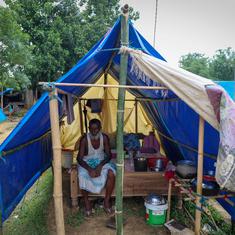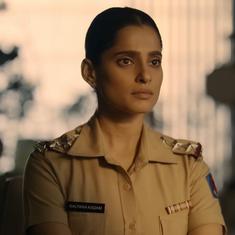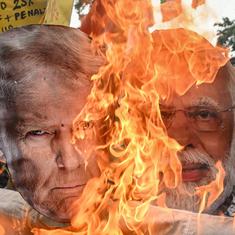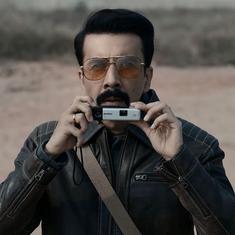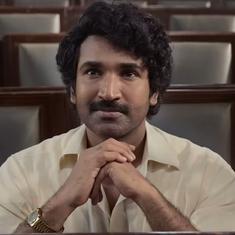The Telugu show Arabia Kadali takes viewers on a sweeping maritime journey through the lives of fishermen caught in the net of geopolitics. The Prime Video series from Krish Jagarlamudi and Chintakindi Srinivas Rao spans eight episodes and covers over a year.
Directed by VV Surya Kumar, Arabia Kadali explores what happens when men from rival villages are forced to depend on each other after being captured in foreign waters and incarcerated in a hostile environment.
The story centres on Badiri (Satyadev) and the struggles of other local fishermen like him. The coastal villages of Andhra Pradesh are in crisis. The once-bountiful Bay of Bengal has been overfished and polluted. There’s no jetty or proper boats.
The fishermen migrate to Gujarat for long weeks at sea as hired hands on company fishing boats. The lure of the Arabian Sea’s richness draws them further westward. What begins as a desperate mission for livelihood turns into a nightmare when the fishermen inadvertently cross into Pakistani waters and are arrested on the charge of being Indian spies.
The core of Arabia Kadali lies not in politics, but in human endurance. The series draws attention to the plight of innocent fishermen who are detained and forgotten across national borders. The prison scenes in Pakistan depict systemic brutality and neglect, with jailer Saleem (Amit Tiwari) and others showing little compassion.
Badiri’s romance with the schoolteacher Ganga (Anandhi) is not just a tender subplot but a source of emotional depth. A determined Ganga, with the help of Sekhar (Vamsi Krishna), accelerates the fishermen’s defence. In Pakistan, Fathima (Poonam Bajwa) displays similar compassion, supported by her husband Hanief (Nihar Pandya).
Rivalry plays a key role in the plot. The inter-village conflict continues even in captivity.
As the men are forced into survival mode, the dynamic evolves from antagonism to solidarity – one of the show’s more effective arcs. Lokesh Chenna, Kota Jayaram, Hara Srinivas and Bhuvan Salaru play some of the prisoners.
However, the show misses out on fully capturing the emotional weight of confinement and the longing for home. The situation escalates into an international relations issue, involving ministers, diplomats and politicians in both territories.
As Badiri, the de facto leader of the fishermen, Satyadev delivers a stoic, grounded performance. The absence of complexity in Badiri – he chooses restraint over rebellion – makes him unbelievable at times, dampening the narrative tension. Anandhi brings warmth and strength, portraying Ganga as a woman armed with education and agency who is unwilling to be a mere bystander.
Sameer Reddy’s cinematography is one of the standout elements. The sea is shot beautifully, alternating between turbulence and sereneness. The production design by D Siva Kamesh – especially the fishing vessels and prison interiors – adds grit and realism. Some of the special effects, particularly involving the sea, are poorly animated and distract from the otherwise solid visual design.
While the daily routines and struggles of the fishermen are authentically portrayed, the drama is occasionally diluted by excessive information. At times, Arabia Kadali veers into docudrama territory, offering too much fish-ology and exposition.
Some dialogue, especially from non-Telugu characters like the Gujarati businessmen and Pakistani officers, feels unnatural. Though rich in atmosphere and emotion, the series struggles with pacing and tends to over-explain its themes. A message about gender equality and women’s choice is overtly stated.
